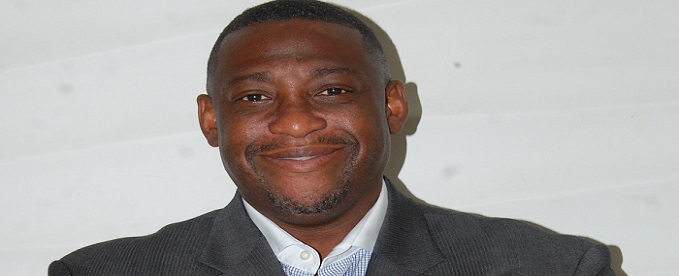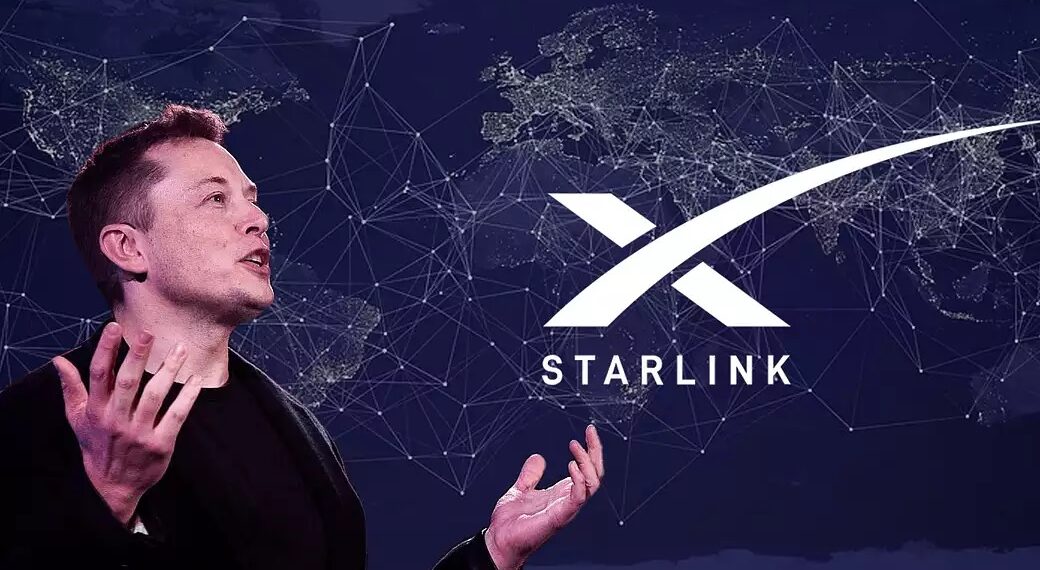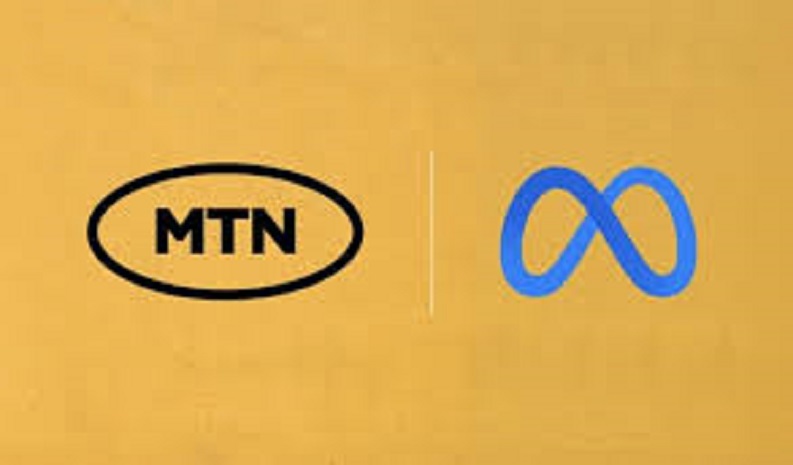Telecom
The 5G Opportunity for Nigeria

By: Eniola Campbell
There has been a lot of talk about 5G, but the reality is that in Africa, many operators are still focusing on 4G to get the most return on investment from the networks. Is this the case in Nigeria?

Eniola Campbell, Country Senior Officer and CBT Head for Nigeria at Nokia
Yes, in Nigeria this is still the case. According to the GSMA, operators in Nigeria have managed to achieve 45% 4G coverage since the launch of the first 4G network in 2016.
This increased 4G coverage has already resulted in improved network download and upload speeds and lower latencies as operators continue to roll out 4G in cities. There are several reasons why the market is lagging in 5G adoption, including cost of infrastructure roll-out, smart phone penetration and affordability.
According to Global Monitor, the Nigeria Telecom Market is expected to continue seeing strong growth over the next 4 – 5 years.
This is mainly due to increased urbanization and the slowly rising adoption of mobile phones that support 3G, 4G and 5G services.
Global Monitor further expects that all the remaining major 2G/3G platforms will be closed by the end of 2025 and forecasts that by 2029 most mobile connections will be on 5G. This is also in support of Nigeria’s 2020-2025 National Broadband Plan, which has set very ambitious targets for Nigerian CSPs.
5G holds a lot of promise for the world, but it requires a huge investment to attain nationwide 5G coverage.
This coupled with the economic impact of COVID-19 in Nigeria will impact the investment case for 5G in Nigeria and the rest of Africa in the short term, thus 3G will remain a viable option due to the lower adoption rate of 4G and the need to have a fallback strategy for rural areas.

Recent developments, however, have seen a big push toward making 5G a reality for the country.
Spectrum for 5G is set to be auctioned in the last quarter of the year and the Federal Government hopes that urban centres in Nigeria will have been 5G enabled by 2025. The Nigeria Communications Commission (NCC) has also submitted a 5G Development Plan (5GDP) to Federal Government for final approval, paving the way for increased momentum in rolling out 5G.
What are some of the key inhibitors in building 4G networks and ultimately making the shift to 5G?
The key inhibitors in building 4G networks include right of way for fiber deployment, the cost associated with network upgrades and limited, albeit growing, smart phone penetration in the market.
These elements will ultimately affect 5G introduction. In addition, the 5G spectrum in Nigeria is still being defined and needs to be allocated in enough contiguous spectrum to allow the value of 5G to be realized in the mid to low frequency bands.
At the beginning of May, the Nigerian Communications Commission did, however, sign a memorandum of understanding (MOU) with NigcomSat, around the use of C-Band spectrum for 5G services, showing a commitment to fast-tracking the roll out of the technology. The Commission highlighted the possibilities that 5G will bring to the economy, including higher connection speeds, mobility, and capacity, as well as low latency capabilities.
What are some of the biggest trends you see in 4G adoption?
There are several big trends that are driving 4G adoption currently. These include continued remote working policies due to COVID-19, an increased use in social media platforms, video-on-demand and streaming services, and eLearning. These have positively impacted 4G adoption and increased demand. On the downside, 4G enables the use of voice-over-IP (VoIP), which becomes a substitute to voice services offered by communications service providers, and this has led to a decline in voice revenue for operators in Nigeria.
How ready is the country to adopt 5G and what are some of the interesting discussions that are emerging around it?
Nigerian market is ripe for 5G adoption. We have already seen commitments by the Ministry for Communication and Digital Economy and the Nigerian Communications Commission through the National Broadband Plan, and the MOU signed with NigcomSat to prioritise pervasive broadband and speed up 5G roll out plans. There is a segment of society, the early adopters, that will see a lot of value with the enhanced mobile broadband and ultra-low latency use cases that 5G will enable. Fixed Wireless Access (FWA) for home broadband users is a key trend that would drive 5G adoption in Nigeria.
Which industries in Nigeria do you foresee will be early adopters of 5G and what are some of the use cases you expect to see emerging?
5G as a technology will enable high download speeds and low-latency applications. These are important for remote learning, media, medical, public safety (citywide surveillance) and manufacturing industries. We believe the early adopters will majorly be the media industry especially streaming and video-on-demand service providers.5G will also be a key driver in developing smart cities in Nigeria as it provides a high-performance network foundation and robust city-grade platforms to bring together the intelligence within smart city applications and services to fuel economic and social growth in cities.
What are some of the most recent enhancements that Nokia has made to its product portfolio?
Nokia recently announced some enhancements to our mobile network portfolio that will enable CSPs to offer superior services to their subscribers while lowering their overall total cost of ownership. Some of these include the industries lightest 32×32 TRX massive MIMO radio at 17kg, O-RAN support of RF products and the widest Instantaneous Bandwidth (IBW) of 400 MHz in the market. It also includes high-capacity baseband called ABIO that supports 90,000 connected users.
To reduce time to rollout, while ensuring optimal performance of cell sites, we have introduced Nokia Digital Deploy and best-in-class 5G/NR RF planning and optimization services and tools.
From a transport infrastructure perspective, Nokia’s integrated IP/optical solution combines high performance 7750 Service Routers with high capacity 1830 Photonic Service Switches and network automation improve response times. It also reduces service delivery times so that customers can always operate at full speed, growing and scaling up connectivity as needed.
Our optical portfolio is powered by Nokia in-house, advanced chipsets (Photonic Service Engine) that can transmit high-capacity optical signals of up to 800 Gbps over long distances. Nokia’s industry-leading edge routing portfolio provides the scale, performance, and extensive service capabilities that our customers need to keep pace with evolving network demands. Featuring the breakthrough in-house-designed router silicon innovations, our proven Service Router Operating System (SR OS) enables software and multi-vendor systems integration capabilities.
To address the rising demand for home broadband, the Nokia GPON, XGS and 25G PON products are powered by the Nokia Quillion chipset to enhance capacity and performance of the network. In addition, Nokia Fixed Wireless Access products, Nokia Residential Gateway and Indoor CPE have been designed for optimal performance to unlock value to home broadband customers in a secure manner.
The complexity of modern networks has introduced new security requirements and to address this Nokia has released NetGuard XDR Security Operations to extended detection and response (XDR), which natively integrates multiple security products into a cohesive security operations system. XDR provides overarching security lifecycle management that orchestrates and automates risk and threat prediction, detection, and response, with threat intelligence tailored to a CSP’s unique requirements.
– Campbell is Country Senior Officer and CBT Head for Nigeria at Nokia
Telecom
How Starlink Took over Africa’s Largest Internet Market

Starlink has become a major internet service provider in Nigeria, driven by its reliable, high-speed access.

Its success has led to local internet service providers losing subscribers and raising concerns about unfair competition, according to restofworld.org, which reports global tech stories.
Critical institutions have avoided using Starlink’s network because of national security concerns.
In the sprawling electronic market of Lagos’ Computer Village, an item is flying off the shelves: the Starlink kit.
These satellite dishes, with their distinctive white faces and plug-and-play simplicity, represent more than just easy internet availability in Nigeria. They symbolize a technological coup in Africa’s most populous nation, where terrestrial broadband or wireless options are unreliable or inaccessible.
“I have about 20 pieces in the store, but I’m sure they will go before today ends or at the latest tomorrow morning,” Quadri AbdulFatai, a local electronics vendor who claims to have sold more than a thousand units in just 13 months, told Rest of World. “Starlink is very hot now.”
In January 2023, Nigeria became the first African market that Starlink entered.
Two years later, it now ranks second among internet service providers, which are classified separately from large telecom players by the Nigerian authorities.
With over 65,500 users at the end of the third quarter last year, Starlink is second only to 16-year-old Lagos-based ISP Spectranet, according to data from the Nigerian Communications Commission (NCC), the country’s telecom regulator.
At current growth rates, analysts predict Starlink will become Nigeria’s top internet service provider by mid-2026.
The secret to Starlink’s meteoric rise lies in a simple market reality: Nigerians are desperate for reliable, high-speed internet, which local providers have consistently failed to deliver, according to Temidayo Oniosun, managing director at Space in Africa, a market intelligence company focusing on the continent’s space and satellite industry.
Telecom companies and traditional ISPs in Nigeria suffer from frequent outages, sluggish speeds, and spotty coverage, especially in rural areas where terrestrial infrastructure is limited or nonexistent.
“Nigerians want high-speed and reliable internet, and Starlink’s technology offers that better than anyone else,” Oniosun told Rest of World.
“That’s why it is growing at an incredible speed. While the services aren’t the cheapest, launching with different pricing in different African markets shows that Starlink understands the markets.”
Starlink has made investments in building infrastructure in Nigeria. It has built a base station in Lagos and plans to add facilities in neighboring Abeokuta and Port Harcourt, Nigeria’s oil hub.
These stations will enable the company to beam low-latency internet directly to its rapidly growing user base throughout the country. Low latency is the ability of a network to respond with minimal delay.
Starlink’s success has unsettled competitors. When the company increased subscription prices last October, local operators cried foul, accusing regulator NCC of applying double standards by ignoring their requests for tariff reviews.
The regulator eventually granted local providers a 50% tariff increase in January, but customer perception had been damaged.
The regulator has fostered a fair and enabling environment that empowers all licensed operators, including Starlink, “to compete, innovate, and grow in response to market needs,” an NCC spokesperson told Rest of World.
The regulator has fostered a fair and enabling environment that empowers all licensed operators, including Starlink, “to compete, innovate, and grow in response to market needs,” an NCC spokesperson told Rest of World.
The regulator has licensed over 27 satellite-based communications services providers and issued over 90 landing rights to space segment operators, which include established providers like Eutelsat, SES, Viasat, and YahClick.
“In recent times, the commission has observed growing interest from both established global players and new entrants (especially those providing emerging satellite services) seeking to enter the Nigerian market,” the spokesperson said.
“This level of engagement reflects growing investor confidence in Nigeria’s digital economy and the enabling environment provided by the commission.”
Nigeria has 241 licensed ISPs, of which only 124 had active users as of the third quarter of 2024, collectively serving more than 300,000 subscribers, according to NCC data.
Starlink’s arrival has been nothing short of catastrophic for incumbents. Market leader Spectranet lost 8,428 subscribers between the last quarter of 2023 and the third quarter of 2024, while Tizeti lost about 700 in the same period.
While the losses appear modest, they are significant in the context of the small size of the market served by Nigeria’s ISPs.
The internet landscape is more dominated by mobile network operators MTN, Airtel, Globacom, and 9mobile, which collectively serve 132.4 million subscribers, providing both internet access as well as traditional phone services.
The playing field is fundamentally uneven, said Temitope Osunrinde, chief marketing officer at Tizeti.
The challenges for local operators include buying spectrum and building local capacity, hiring talent, and paying multiple taxes. If digging for fiber, they have to contend with multiple local government right-of-way permits and also area goons.
“You can’t compare Starlink with local companies because they don’t have to set up local capacity, nor hire and set up an office,” Osunrinde told Rest of World.
Gbenga Adebayo, chairman of the Association of Licensed Telecommunications Operators of Nigeria (ALTON), believes Starlink’s success reflects not a failure of local providers but “a challenging operating environment, which includes issues such as multiple taxes, multiple regulations, high right-of-way charges, infrastructure vandalism, and the rising cost of foreign exchange.”
Yet for ordinary Nigerians, these industry complaints hold little water compared with the tangible benefits of reliable connectivity. “For me, it was less speed and more concern about constant internet blackouts during meetings,” Olumide Lewis, a Lagos-based tech worker who recently installed Starlink, told Rest of World. “Since we bought our Starlink, we have had some peace of mind. We don’t spend our time thinking about the bad internet again because everything just works.”
Telecom
MTN Champs Lagos Continental Relays: A Celebration of Sportsmanship and Fun

MTN Champs Season 3 Lagos Continental Relays concluded on April 12, 2025, with a vibrant closing ceremony at the Yabatech Sports Complex.

This event marked a historic moment in Nigerian athletics, featuring the debut of the Olympics-approved mixed relays and showcasing exceptional talent across various track and field events.
The final day was a blend of intense competition and entertainment, drawing families, friends, and MTN Nigeria staff to the stands. Guests enjoyed music, games, and the much-anticipated MTN Staff Relays, where teams from different departments competed for medals and bragging rights. The Innovators emerged victorious, clinching gold in both male and female categories.
MTN executives also joined the fun, participating in 50m sprints and emphasizing the importance of physical activity. Chief Human Resources Officer, Esther Akinnukawe, highlighted the company’s Go M.A.D (Make A Difference) campaign, encouraging individuals to stay active and impactful in their fields.
The Lagos Continental Relays attracted over 2,500 entries from 155 schools, with participants competing in four age categories: Cadet (U-14), Youth (U-17), Junior (U-20), and Senior. The event not only celebrated athletic excellence but also reinforced MTN’s commitment to nurturing future Olympians and building a legacy of sports development in Nigeria.
Season 3 of MTN Champs continues with the grand finale scheduled to take place in Uyo at the Godswill Akpabio Stadium from April 30 to May 3.
Telecom
MTN, Meta Partner to Enhance Voice and Video Calling Quality

MTN Group, Africa’s leading telecommunications provider, has joined forces with Meta to improve the quality and reliability of voice and video calls on real-time calling applications such as WhatsApp across 12 MTN markets.

The collaboration, which began at the Mobile World Congress (MWC) 2024, focuses on optimizing application-aware networks and network-aware applications to deliver a seamless and high-quality user experience. By leveraging data analytics and conducting comprehensive testing, MTN and Meta have successfully developed solutions that enhance the interaction between mobile networks and real-time calling applications.
Nigeria, MTN’s largest market, was the first to implement these enhancements. Early results indicate a remarkable 50% improvement in key performance indicators (KPIs), significantly enhancing the user experience for MTN Nigeria mobile users.
“This implementation further demonstrates our commitment to enhancing our customers’ digital experience.
“We’re pleased with the remarkable improvement in our real-time communication services, reflecting our commitment to innovative customer solutions,” said Yahaya Ibrahim, Chief Technology Officer (CTO) at MTN Nigeria.
Diego Marí, Head of Network Ecosystems Engineering at Meta, added, “The collaboration allows us to deploy advanced solutions for an unparalleled real-time experience in Nigeria and showcases our dedication to elevating service quality and improving user experience, while striving for continued efficiency in traffic delivery.”
The partnership underscores MTN and Meta’s shared vision of delivering cutting-edge solutions to enhance digital communication across Africa.

 E-Business2 days ago
E-Business2 days agoNITDA Warns Against Fake Google Play Store

 General News2 days ago
General News2 days agoLagos Commences Integration of NIN with State Single Social Register

 E-Financial2 days ago
E-Financial2 days agoSEC Bans Unregistered Digital Asset Exchanges, Online Forex Platforms

 News2 days ago
News2 days agoNOA Uncovers Fraud by Banks, Universities in Students Loan Scheme

 E-Financial2 days ago
E-Financial2 days agoUBA Redefines Banking with Next-Gen PoS Terminals and Revamped MONI App

 E-Financial2 days ago
E-Financial2 days agoAfrica Loses $88.6Bn Yearly to Corruption- ECOWAS

 E-Financial2 days ago
E-Financial2 days agoNIBSS Heads to Court to Recover N4Bn Lost due to System Glitch

 General News2 days ago
General News2 days agoNigeria Records $6.83Bn Balance of Payments Surplus in 2024 Amid Economic Reforms

























